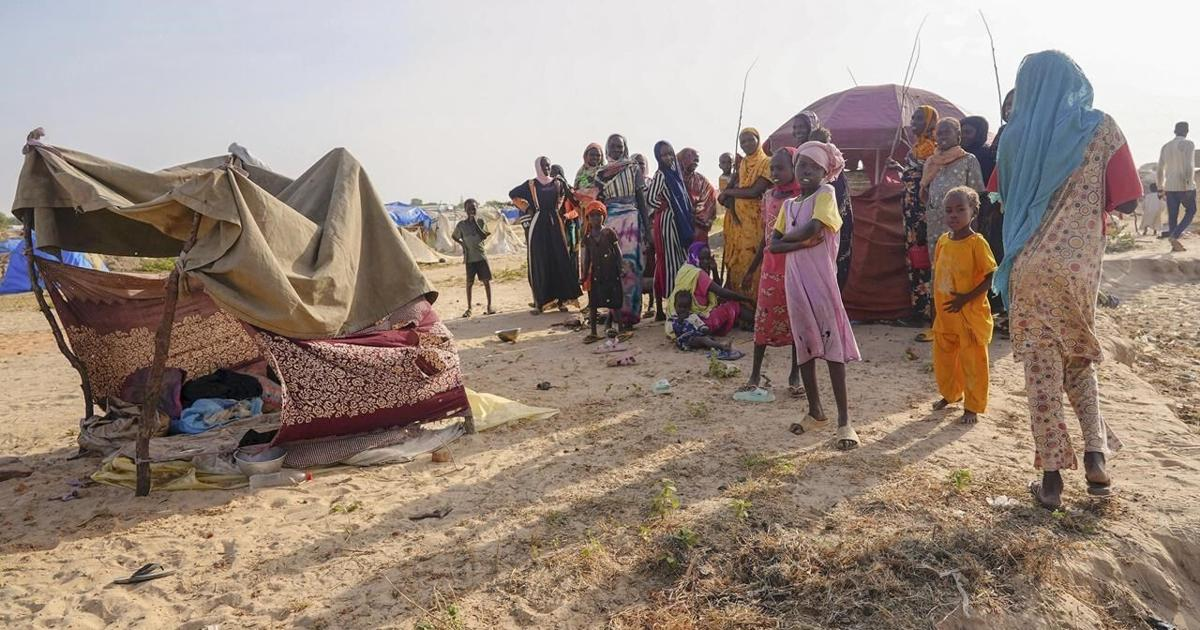The ongoing conflict in Sudan, which erupted in April 2023, has drawn significant international attention and condemnation. The United States recently labeled the atrocities committed by Sudan’s Rapid Support Force (RSF) and its proxies as genocide, imposing sanctions on the group’s leaders.
However, the United Kingdom has refrained from making a similar declaration, stating that such determinations are the prerogative of the International Criminal Court (ICC).
The UK’s stance reflects a cautious approach to the politically charged term “genocide,” while affirming its commitment to ensuring accountability and providing humanitarian assistance.
The UK’s Stance on Genocide Determination
Foreign Office Minister Anneliese Dodds, responding to concerns in the House of Commons, emphasized the UK Government’s position that genocide determinations are a matter for courts, particularly the ICC.
She stated, “The long-standing position of successive British governments is that it is for courts to decide whether genocide has occurred.” This approach aims to maintain an impartial and evidence-based framework for identifying and addressing crimes of genocide.
Read : Israel Denies Claims of Using Water for Acts of Genocide in Gaza
While refraining from using the term “genocide,” the UK has unequivocally condemned the atrocities committed during the Sudanese conflict. Minister Dodds noted, “Irrespective of any genocide determination, it is clear that atrocities have been committed in this conflict, and those responsible must be held to account.”
Read : Video Shows Man ‘Defecating in Lake’ at Rishi Sunak’s Constituency Home: 4 Arrested
The UK Government has pledged to work with international partners to press the warring factions to adhere to international law, protect civilians, and ensure accountability for human rights violations.
International Reactions and Pressures
The US administration’s decision to classify the RSF’s actions as genocide has intensified calls for similar declarations from other countries. Shadow Foreign Secretary Dame Priti Patel described Sudan as being on the brink of a “man-made catastrophe on an unimaginable scale” and questioned whether the UK would align its sanctions policies with those of the US.
Minister Dodds acknowledged the importance of sanctions but refrained from commenting on future actions, citing the need for careful consideration.

Liberal Democrat spokesperson Calum Miller and Scottish National Party MP Chris Law also pressed the Government for clarity and urgency in addressing the crisis. Miller urged the UK to set a deadline for determining whether genocide was taking place, while Law criticized the Government’s reluctance to use the term despite mounting evidence of widespread atrocities.
Minister Dodds defended the UK’s cautious approach, emphasizing the importance of international trust and a robust methodology in genocide determinations.
She explained, “It is critical that we have trust internationally in that system, that we make sure there is a clear, impartial, and independent methodology for the determination of genocide.” This stance underscores the UK’s commitment to upholding the principles of the Genocide Convention and the Rome Statute, even as it faces criticism for perceived inaction.
The Urgent Need for Global Action
The conflict in Sudan, fueled by power struggles between rival factions, has led to extensive human suffering, with countless civilians caught in the crossfire. John Slinger, Labour MP for Rugby, highlighted the urgent need for increased international pressure to deter war crimes and facilitate humanitarian aid.
He remarked, “More external pressure is needed from the international community to deter those who would commit war crimes, to make sure that humanitarian aid gets in, irrespective of local opposition.”

The UK Government has echoed the importance of international cooperation in addressing the crisis. Minister Dodds affirmed the UK’s commitment to supporting humanitarian efforts and holding perpetrators accountable.
However, critics argue that stronger measures, including the formal recognition of genocide and the implementation of targeted sanctions, are necessary to address the scale of the atrocities and prevent further escalation.
As Sudan continues to grapple with violence and instability, the international community faces the challenge of balancing political considerations with the urgent need to protect civilians and uphold justice.
The UK’s cautious approach highlights the complexities of genocide determinations and the importance of maintaining credibility in the international justice system. However, the pressing humanitarian crisis in Sudan demands decisive action to alleviate suffering and pave the way for peace and accountability.

